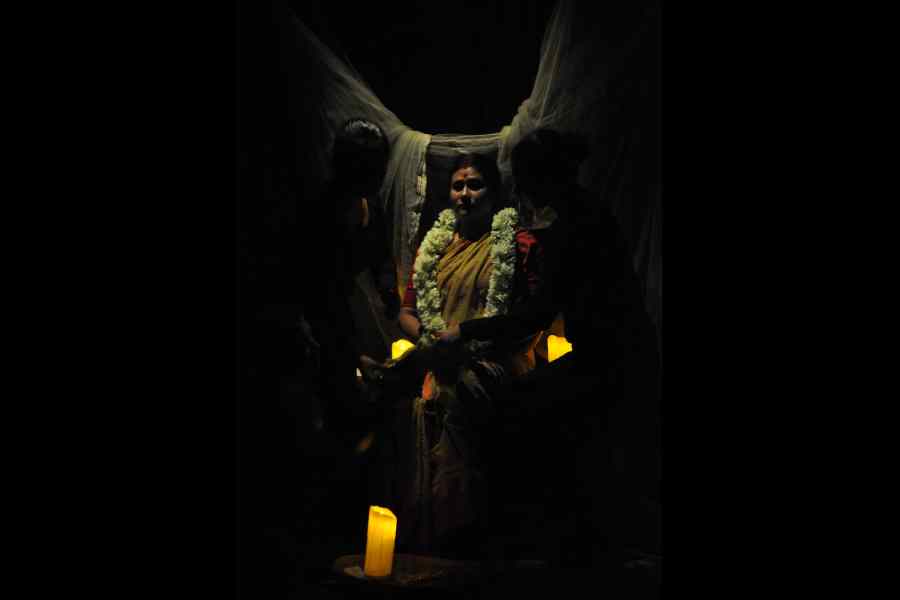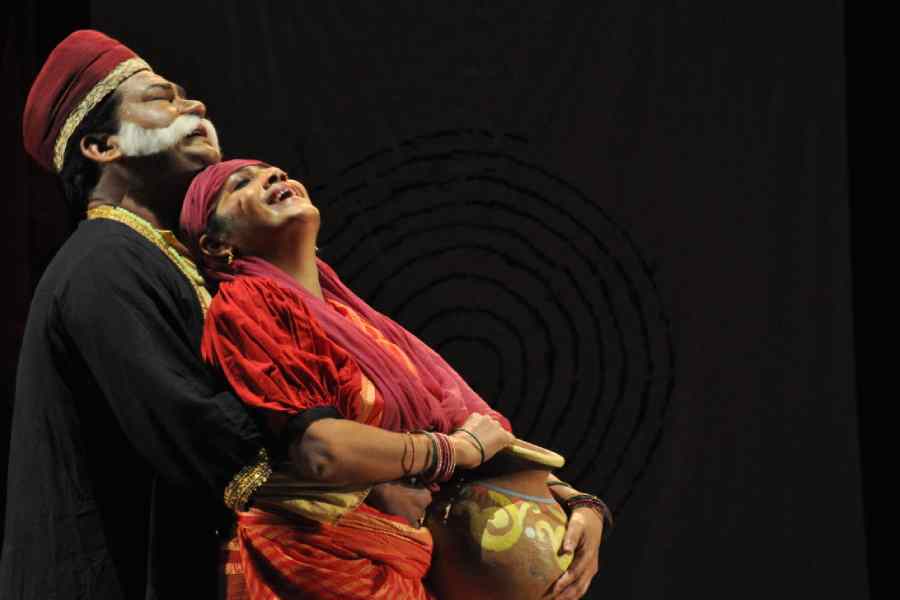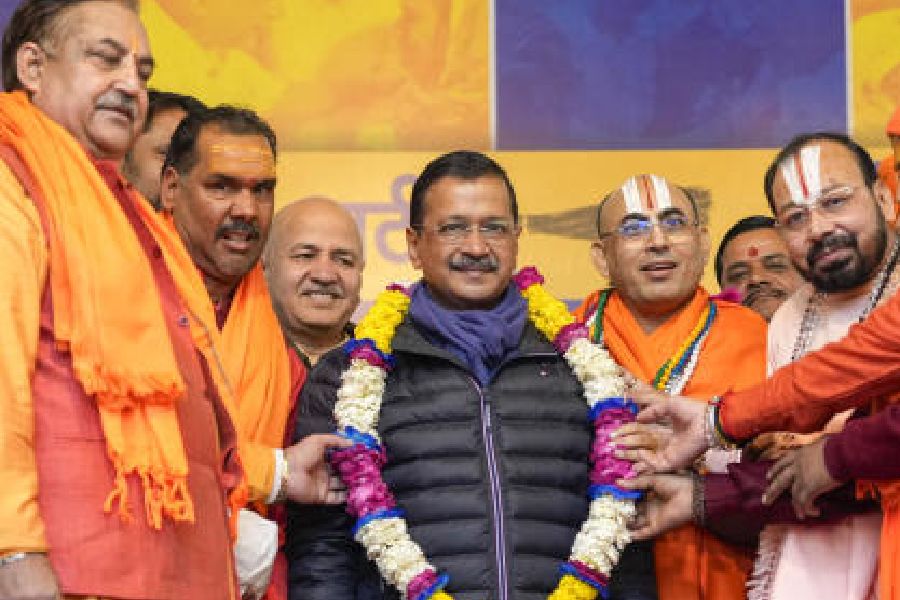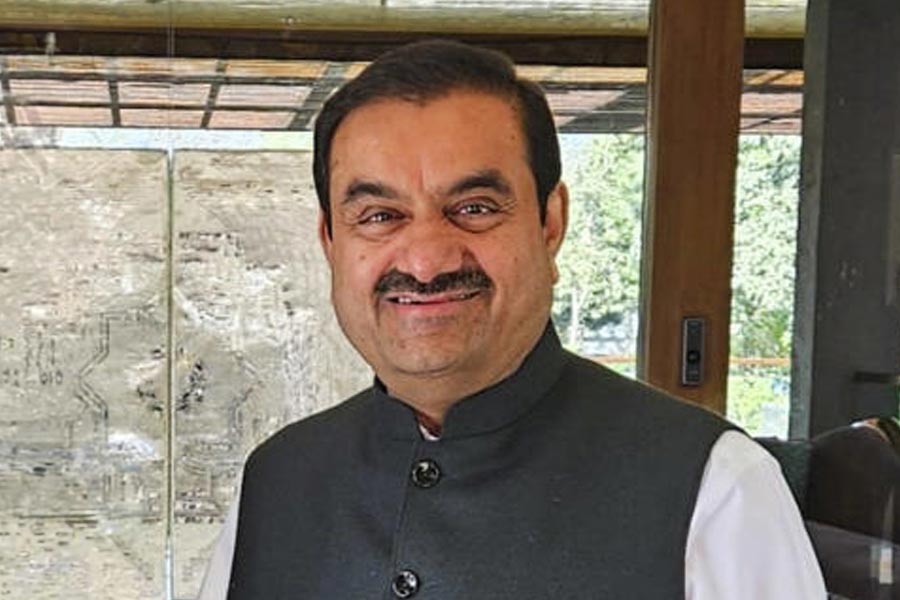At a time when the whole of Bangladesh was a picture of disarray and anarchy, with a reign of terror unleashed in the country that toyed with the syncretic tradition that Bengalis at large have upheld so dearly for ages, a quaint musical on Dewan Hasan Raja Chaudhury (circa 1854-1922) played out at the Academy of Fine Arts auditorium on August 6. It celebrated the mystical aura that the Sylhet region is so famous for. It reworked bits and pieces of the life of an exceptional zamindar and poet who was Muslim by birth, yet composed some of the most moving songs on the Radha-Krishna and the Kali cults. Shunyer Majhare (picture, top), as the production under review is titled, sought to renew our faith in the ‘religion of man’, albeit mystically. In the Hibbert Lectures at Oxford in 1930, Rabindranath Tagore famously quoted Hasan Raja: “We realise it through admiration and love, through hope that soars beyond the actual, beyond our own span of life into an endless time wherein we live of all men.” This production by Belghoria Rooptapas reiterated that.
Scripted by Ujjwal Chattopadhyay and directed by Kaushik Ghosh, Shunyer Majhare is bolstered by the former’s experience in handling bio dramas and his newfound interest in the rural heartland of what is traditionally known as East Bengal. Episodic in structure and esoteric in essence, the production remains focussed on the mysticism that Hasan Raja’s songs are rooted in and the romanticism and the hedonism that his life is replete with. Ghosh ropes in Shyamashis Pahari from Midnapore and Uttam Chattopadhyay from Birbhum — both excellent singer-actors — to essay the bifurcated persona of the zamindar-poet. Hasan Raja’s dalliances with a seemingly unearthly Uma (Monalisa Chatterjee), a flirtatious Pyari (Shipra Mukherjee), a sensual Sonalia (Bidisha Sen) and others are balanced against a caged kura bird, symbolically representing the unrest in his mind. The jatra and the boat ride sequences towards the end highlight the celebratory nature of our indigenous culture.
Given our usual apathy towards the ‘theatre of roots’ and subservience to the Western realist tradition, Shunyer Majhare makes a melodious case in favour of a theatre reverberating with the ethos of riverine Bengal. Abhijit Acharya, the music designer, assigned with a tough challenge, remains true to the roots and leads a live band of accompanists. Pankaj Singha Roy, the choreographer, appropriates the cultural melting pot that Sylhet is and makes the actors dance like whirling dervishes and sometimes in gay abandon as they negotiate with Hiran Mitra’s multi-layered stage. Sudip Sanyal’s lights missed the target at times but kept us cued in for close to two hours.
Talking of tortured souls and cultural icons, Jibanananda Das’s autobiographical novel, Malyaban (written in 1948 and posthumously published in 1973), finds a sensitive treatment within the intimate setting of TheaApex, Dum Dum. Das bares his soul — fractured and strained with desires unfulfilled and dreams unrealised — open in this stream-of-consciousness narrative that yields easily to Jungian interpretations, yet remains close to the portrait of an artist, à la James Joyce. Credit goes to Candid Theatre and its director, Sudipta Bhuiya, for crafting appropriate visual imagery with mosquito nets and a cat-devouring-a-fish metaphor, experimenting with an eerie soundscape and a three-woman chorus that pulsates with tantric undercurrents. Interpolations from Das’s short stories make Malyaban (picture, bottom) more defined than the original.

A moment from Malyaban by Candid Theatre. [Source: Anshuman Bhowmick]
Bhuiya maximises the scope of the space to facilitate an immersive experience. Debasish Dutta mixes vulnerability with sensibility in playing the protagonist. Moumita Bhuiya excels as Utpala, the dark and sinister female lead with strong yet subdued sexual nuances.











